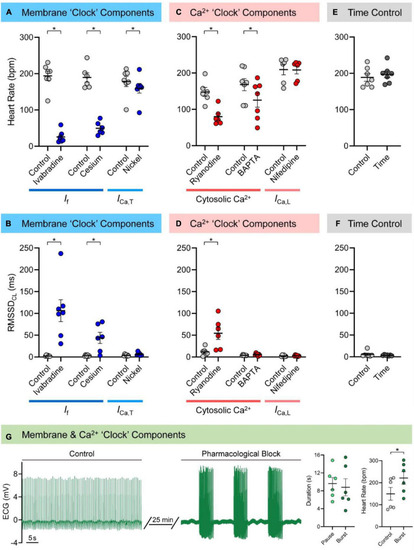FIGURE 1
- ID
- ZDB-FIG-220319-28
- Publication
- Stoyek et al., 2022 - Drivers of Sinoatrial Node Automaticity in Zebrafish: Comparison With Mechanisms of Mammalian Pacemaker Function
- Other Figures
- All Figure Page
- Back to All Figure Page
|
Mechanisms of zebrafish sinoatrial node (SAN) automaticity. Effects of pharmacological block of membrane (40 min of 3 μM ivabradine hydrochloride for intracellular block of “funny” current, |

